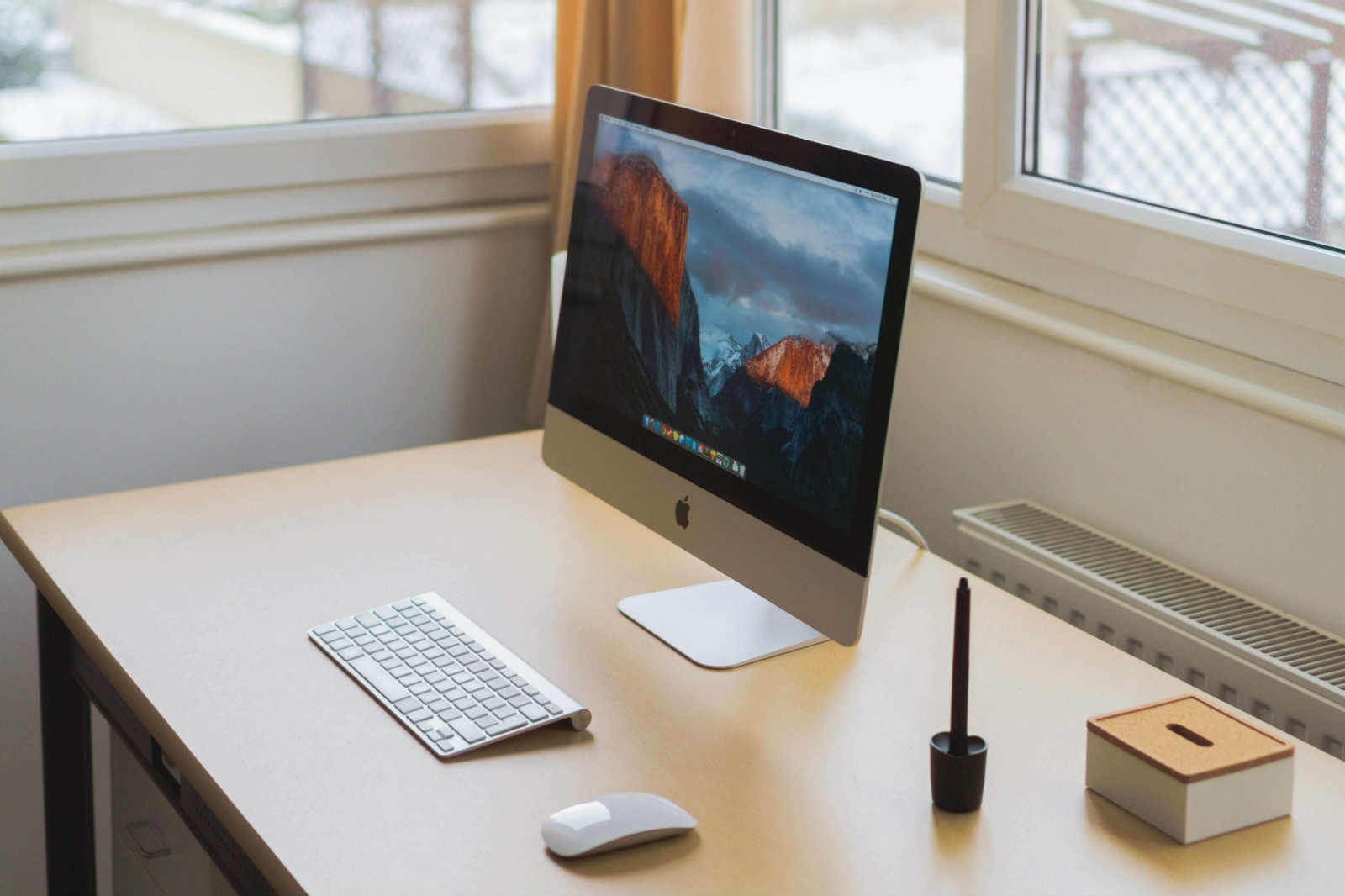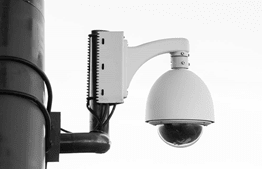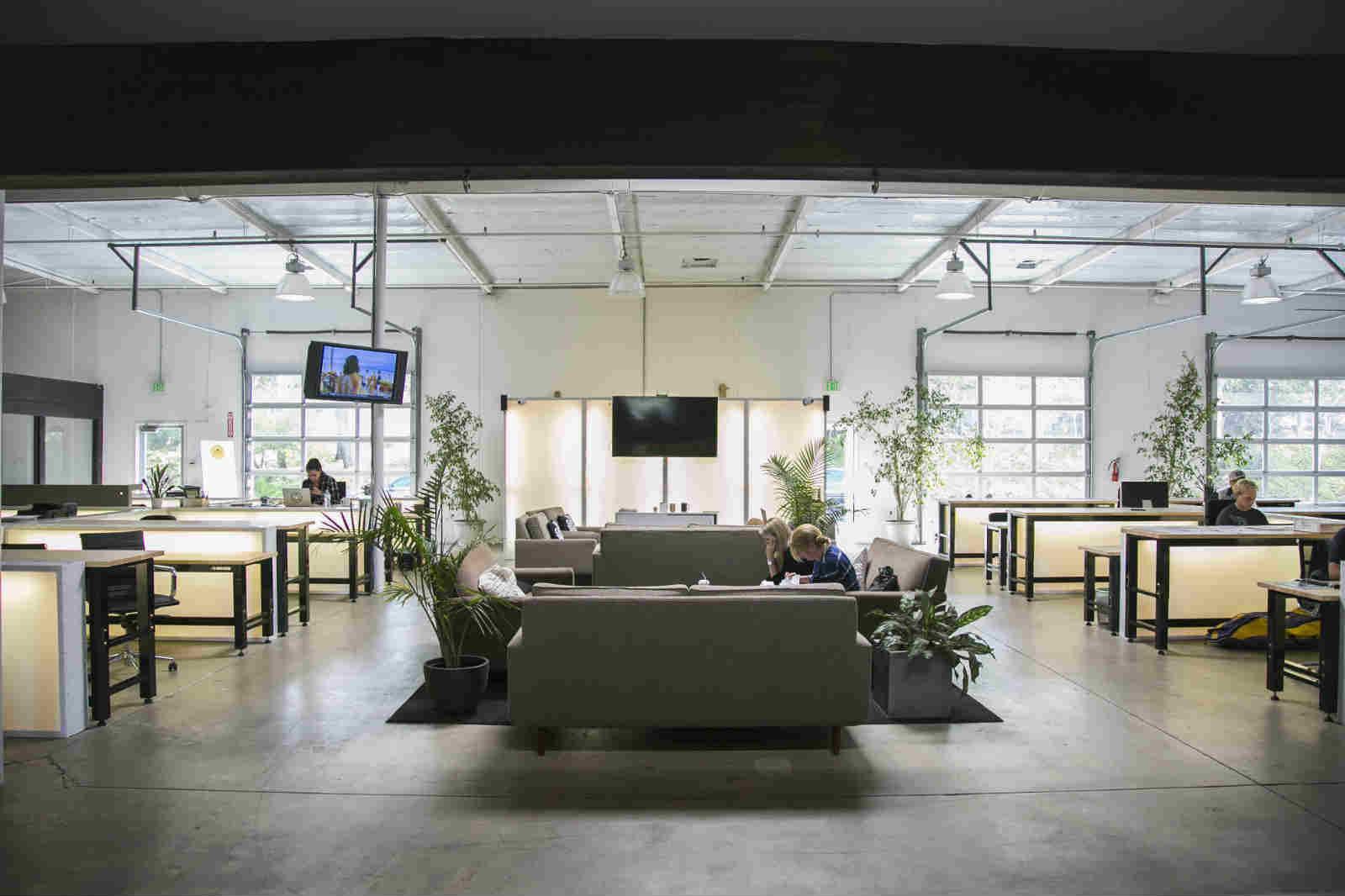Scaling Your Coworking Space
Scalable businesses make the most successful ones.
01
Outgrow Your Coworking Space

While a coworking space is an excellent choice for many entrepreneurs and small businesses, it is very common to feel you have outgrown coworking spaces as your company grows. While many startups find that continuing a coworking space works for them, many will feel the need to scale up. You may have too many employees to fit in the space you currently frequent or want to improve market access or revenue streams. Many companies also realize as their numbers increase that having a coworking spacebecomes less cost-effective. Some companies also realize they have outgrown coworking space options if they want a more permanent space.

Options When You Outgrow Your Coworking Space
Move into a Private Office
The best option for many companies who have outgrown coworking is to go ahead and move into a private office. This will be ideal if one of the reasons you chose to leave the coworking space was to create a feeling of permanence for your company and services. Your own office can be highly cost-effective since you can control how many employees you have in the space without having to pay extra for each desk used. It also allows for customization, so you can incorporate some elements of coworking that your team likes, such as flexible seating.
Consider a Serviced Office
If you want to take another step before renting a private office for your company, you can opt for a serviced office. These spaces can be a natural progression from coworking for many small businesses since they are fully managed and equipped, meaning you have minimal work to do. While the upfront costs are smaller than getting your own office space and furnishing it, the continuing costs are likely to be higher. You also have almost no control over things like furnishings and amenities.
Find an Incubator or Other Space With Scalability
Of course, there is also the option of finding a similar location to the outgrown coworking space but with more room. If you really like the idea of a coworking space for your company, see if there are larger ones in your area and if you can get a discount for having a larger number of memberships. Or look into an incubatoror accelerator, as these tend to offer more scalability with the ability to accommodate businesses of all sizes.

Setting Up a New Office
If you choose to set up a new office for your company once you have outgrown coworking, then you will want to ensure that you take a few key steps.
Ensure Security Measures Are in Place
Start by ensuring that your office hasproper security measures. Things like security cameras and strong access control systems can provide the flexibility you need in your office without sacrificing security.
Provide Appropriate Furniture and Supplies
You also need to make sure that your office has all the supplies and furniture that your team will need to get the work done. Pay attention to large items, such as desks, chairs, and computers, as well as smaller things, such as paper, printers, ink, calculators, and pens. Don’t forget to include amenities like coffee, coffeemakers, toilet paper, and similar items.
Ensure Connectivity
Take the time to ensure your office hasthe required connectivity, as well. This includes setting up a phone system and internet. Get your new address listed in online directories, and update the address on your website.
02
Quality Over Quantity

Jeran Fraser, Founder and CEO at Incubate Ventures Inc. shares with us how they built an innovation-centered coworking space by focusing on quality members instead of mainstream marketing.
Incubate Ventures started in Carlsbad, CA in 2015 to provide more than just a space for entrepreneurs and startups. Incubate started with a network of investors and an idea of providing office space, along with services and capital. In 2017 Incubate opened a much larger space, giving several companies the opportunity to network and connect with other like-minded individuals.

Setting Up a Coworking Space Without Marketing
The space quickly grew without marketing simply because the idea behind building Incubate Ventures was less focused on quantity and more focused on quality. "We didn't want Incubate to act as a coworking space." "We wanted our space to grow organically" and "ultimately we were focused on the deal flow in the space, not how many butts we could get in the chairs."
This became a huge differentiator, as nearly all our competitors put the focus on real estate and not the ideas and network. Their current office in Carlsbad happens to be the former music studio of Tom Delonge from Blink182 and there's a ton of history there. "One thing you can't replicate is character," says Jeran.
Focusing on Quality Members and Technology Helps a Business Scale
As someone super passionate about startups, the goal of building out a cowork space was to bring to companies together and ultimately provide an opportunity for us to look at potential investments and launch new ideas. Community first has been our focus and that's how anyone opening a coworking space should view the business.
Our tenants are vetted through a unique process to assure they are a great fit for the space. As much as every tenant equates to revenue our goal is high retention among our tenants, which is important as we scale and grow. We also believe that technology plays a key role in building and maintaining that community, which is why Incubate is constantly focusing on evolving with technology.

Challenges of Building a Coworking Space
It's always been a dream to build a cowork space, but the truth is until you've actually done it, it's hard to really understand the challenges that go with it. You're dealing with emotions and not one, but many. You're also responsible for making sure that every aspect of the space is running smoothly, from internet to printer to attitudes. It's definitely no easy job, but thankfully there's a few pieces of technology we've relied upon to make our job that much easier.
One of the biggest problems we had early on was keeping the door locked and unlocked. Today we've built a very unique system with KISI to allow for our doors to only be open when there's people in the space, which ultimately provides a huge layer of security. We've also leveraged other technology that integrates directly with KISI and the Incubate community. With several layers of technology in place, Incubate Ventures has found a way to scale their business using technology that removes some of the operational challenges that most coworking spaces face and KISI has become a big part of that.
You can find out more about the best Incubators in New York here or other coworking spaces in San Diego here.
03
How to Staff as you scale

Businesses often struggle during transition periods like upsizing. There’s always more to worry about – operating costs, attracting new customers, keeping old ones and the list goes on. Mosre importantly, how can you ensure that the culture of your business is not compromised? Hiring the right staff is key to maintaining and cultivating culture as you scale. Beyond the physical structures of the workspace, your coworking space staff give the space its identity when they interact with clients of the space and ensure their needs are satisfied.
How many new staff you need depends on the size of your venue and what you are offering or planning to offer. There is no single answer to this. Wilmott from IQ office suites tried to develop a staffing model that included a part-time Director of First Impressions, a Director of Operations, and a General Manager. Often, each new location requires a good community manager. This person should be the embodiment of the vibe of the place. They need not have experience working with coworking spaces.
However, they should be people-oriented, hospitable, possess a strong work ethic and willing and happy to fight tooth and nail to satisfy clients’ needs. Besides posting a job advert online, another good way to find good candidates is by asking current coworking space staff if they know any like-minded individuals who fit the job description. This also ensures that the community manager is someone the current staff can work with.
Once hired, you may consider allowing community managers to work like franchise owners and make semi-executive decisions about the space. This autonomy could allow each space to function more effectively and provide coworking space staff with an increased sense of ownership and commitment.
As coworking spaces generally have low economies of scale, scaling your coworking space would require spending twice on rent and twice on manpower. One way to cut down costs is to automate processes. There are many ways to automate, some include letting new clients register themselves, book meeting rooms and even check their monthly payments.
Your team should then be able to remotely lock and unlock rooms, for instance. Automation could cut down coworking space staff by half in the long run, increasing profit margins.
As mentioned, coworking spaces are not as scalable in terms of staff and operating costs. When revenue is doubled, cost is also doubled, making profits stagnant. One way to get around this is to automate some processes. However, building an application requires a high capital outlay as well. So be prepared when choosing between the alternatives.
While new locations may operate independently of each other, a single direction should be established to ensure that every new space is in line with the overarching philosophy. Regional managers and some shared corporate positions could be helpful for this. Regional managers could oversee a few spaces and understand the profiles of each one, to recommend the most suitable ones to new clients as they come along. Corporate level positions offer more bang for the buck when roles like marketing consultants and legal counsels are shared between coworking spaces.
Should your spaces operate like independent franchises, make sure to set up communication channels lest these spaces get too competitive. Community managers should be aware of what other spaces are doing and be committed to realising a common goal. Likewise, employees should also be kept in the loop lest they feel estranged. Regular meetings using Zoom or platforms like Slackcan help ease the communication barrier. Employees who are aware of the company’s overall direction tend to make better decisions as they understand the underlying reasons for actions.
There is no hard and fast rule for hiring staff as you scale your coworking space. The bottom line is a fine balance between your bottom line and maintaining and nurturing the vibe and culture of your original business.
04
How Single Spaces Grow Into Chains

With more than 2,000 coworking locations opening up in 2018, the coworking industry is constantly evolving to keep up with the demands of its members. Last year, 65.3% of the coworking spaces that opened up were new businesses. However, the other 34.7% were either chains or an expansion of current coworking spaces. What helps these expansions to stand apart and succeed? Here are how some coworking spaces grow successfully into chains, while others fail.
Coworking Chains Clearly Establish the Brand
There might be dozens of different coworking spaces to choose from in major business hubs and cities. The demand for flexible working conditions have caused many unique coworking spaces to pop up. The ones that succeed and thrive build a distinctive brand that fits the needs of its community members. These types of coworking spaces go beyond just providing the basic amenities, like a variety of workspace options, access control, high-speed internet, and more. They might provide a niche space for artists and other creatives, tech innovation labs, musicians, and much more.
The Wing is one example of a coworking space that established a clear community-based brand. It started as a female-only coworking space because its founders wanted to create an environment that was safe for women to work. Now the coworking space allows all genders, but it still stays true to its original purpose of building a feminist coworking space while expanding locations spaces in New York, Washington D.C., London, and more. The Wing is thriving due to its unflagging focus on its mission to serve a specific demographic.
Convenient Locations
According to the 2017 DeskMag Global Coworking survey, one of the most important factors that people consider before joining a coworking space is the location. With the rise of more and more coworking spaces in key markets, people can be pickier, and therefore will pick a space that is closer to their home, minimizing their commuting time.
Coworking space owners should therefore carefully consider the location of their first coworking space. Placing it in the heart of the city, or close to public transport can help increase the attractiveness of the space. Building a strong first location can give you the funds and momentum you need to create a second space in an underserved area.
Take CLIK Collective, for example, a coworking space in Kensington, Australia, is easily accessible by road or by train. Coworking members can easily get lunch at the nearby local cafes, shop at the nearby village, and send letters at the post office, all within meters of the coworking space. Having all of these outside amenities within walking distance can be a huge selling point for potential members in cities large and small.
Increase Your Profit Potential
In the beginning stages of a coworking space there is a definable maximum for monthly revenue. The primary revenue stream comes from membership fees, membership packages, or renting out certain equipment. The most successful coworking spaces quickly learn how to maximize the profitability per square foot, allowing them to make more money each month.
Successful coworking chains like WeWork, have expanded outside of the world of coworking and have acquired a slew of companies that help the company extend its brand and create a business ecosystem, with coworking at the center. WeWork has bought the likes of MeetUp, a website that helps people meet in the real world; Flatiron School, a private coding academy; Conductor, a digital marketing startup, and dozens more. WeWork is also trying to expand into services like housing, fitness, and even schools for members' children. By diversifying their services, WeWork is able to meet more of their member's needs and ensure that they are spending their money at WeWork instead of another company.
Coworking spaces that have managed to succeed and open multiple locations have done so through careful market research, diversifying their offerings, and choosing convenient locations. The companies understand what their coworking members are looking for, and aim to fill as many needs as possible.
05
Bringing a Coworking Space to Asia

For coworking companies looking into expanding into Asia, there are some unique considerations to take into account before scaling coworking business within this region. While there are many similarities, the Asian coworking market has its own trends as well. From 2014 to 2017, Asia saw a 150% increase in coworking spaces thanks to growing demand. Businesses, startups, and freelancers alike are showing an interest in coworking in greater numbers than before. To make the most of this and scale up your business, keep the following advice in mind.
Tips to Expand into Asian Markets

Understand Unique Office Culture
Before expanding into the Asian markets with your coworking space, take the time to understand how the office culture in Asia is different from that of Europe and the United States. Research the office culture specific to the country or city you plan to expand into, as scaling coworking business requires customization for each market.
Make Partnerships with Existing Companies
As a newcomer in Asia, you will be at a disadvantage since there will be no brand recognition and you will not be familiar with the customs. You can overcome this by leveraging existing networks already in place and forming partnerships with existing companies. Find a company already in the coworking space, and see if you can work with them to expand. Or partner with a popular service provider, restaurant, or café to include their offerings in your coworking space.
Hire Locals
It should go without saying, but if you want to successfully expand your coworking space into Asia, you should be sure to hire locals. They will be able to help you navigate the cultural and language barriers, and you will be more likely to gain members if it is clear that you support the local economy by hiring locally.
Be Flexible
As with any other expansion, you must be flexible before expanding your coworking business into Asian markets. This is even more important with an international expansion than with a local expansion, particularly since legalities, customs, and even expectations are different.
Choose the Right Location
Asia is huge, offering hundreds of good options of where to start your coworking expansion. If you want to start somewhere with the largest market size, consider Japan or China. If you prefer to deal with more relaxed laws related to foreign investments, choose another area, such as Hong Kong or Singapore.
What to Watch Out For
Regulations and Legalities
One of the most important things to watch out for during your expansion are the local regulations and legalities. Every country is different, so make sure that you know whether foreigners can own a business in your chosen jurisdiction and what requirements there are. To stay safe, hire a lawyer specializing in investments from foreign companies.
Cultural and Language Differences
Any time you expand your business into a market with a different base language and unique customs, you must take care to make sure you do not cause any accidental offenses.
Length of Commitment
You must also be clear that expanding into a new market in Asia will be a long-term commitment. It will take longer to get your footing there and will likely cost more. To ensure this long-term strategy gets the attention it needs, include your Asian expansion in your long-term plan.
Companies Who Successfully Expanded into Asia
It should not be surprising that WeWork, one of the largest coworking companies in the world, is successfully expanding into Asia. WeWork did so by acquiring Spacemob in Singapore last year.
06
Dive Into Coworking Acquisitions

The coworking industry has been making waves in the past couple of years. Not only has the industry as a whole expanded as more and more US workers gravitate towards this non-traditional form of working, but companies like WeWork and Industrious have branched out beyond just providing a workspace for people. What’s behind e WeWork’s acquisition strategy and other large coworking chains like it? Here are a few answers from what we can gather:
Vertical Integration
Coworking giant WeWork has acquired some interesting companies in the past year. One possible coworking space business model it might be utilizing is vertical integration. Coworking has gained in popularity because it blends work with a certain type of lifestyle that encourages being fun, outgoing, and proactive. Through vertical integration (supplying more than one service), WeWork and other actively expanding chains aim to further blur the lines between work and life and extend their brands throughout the average person’s day. Coworking companies are moving towards providing every aspect of living to retain customers, compete more aggressively in the industry, and spread their brands.
The epitome of vertical integration is to take care of every single need the customer has. Generally speaking, coworking spaces have low profit margins per customer. However, the ideal coworking space financial model can achieve more transactions per customer with the right partnerships and acquisitions. For example, WeWork has expanded into services like housing, fitness, and even elementary schools to fit more of their member’s needs.
Consolidation
According to the Global Coworking Survey, just 40% of coworking spaces are profitable. However, the survey did show that 72% of all coworking spaces become profitable after two years in business. Because the industry is fairly new, many of these coworking spaces are still in the beginning stages of operation.
It can be a strong coworking space financial model for large chains to acquire smaller coworking companies that are profitable. Take Industrious, a coworking firm, which recently acquired TechSpace, an office-space provider for tech-related companies. By buying this smaller company, Industrious added seven new profitable locations to its portfolio. Industrious also acquired a Chicago-based coworking company in 2018, which doubled the coworking firm’s portfolio.
Consolidation might be WeWork’s acquisition strategy as well. Even though it lost $1.9 billion last year, it was able to make $1.8 billion in revenue. In 2017, they had just 186,000 members, but the coworking giant now has more than 400,000. The rapid acquisition and consolidation of coworking spaces have helped WeWork continue to drive the business.
Building a Lifestyle Brand
Coworking has clearly become more than just a place to work. These spaces aim to fill needs outside of the workplace and provide a sense of community as well as offering niche services. One example of a coworking company that is building a lifestyle brand is The Wing, an all-female New York social club/coworking chain. The company has built a brand that aims to empower women in all phases of life.
Though it hasn’t been officially admitted, building a lifestyle brand could be the motivation behind WeWork’s acquisition of Meetup, a website that links up people with similar interests and inspires them to meet in real life. WeWork has always focused on building a community through mixers, community gatherings, and other networking events that help its members socialize. However, through the acquisition of Meetup and other companies that are not directly related to coworking, it is becoming more evident that WeWork wants to establish itself as a lifestyle brand.
Regardless of the motivation behind the acquisitions of coworking spaces, it is clear that the industry is rapidly changing. As coworking spaces aim to fit the growing demands of their members, more services and companies will be added to expand the community even further.
